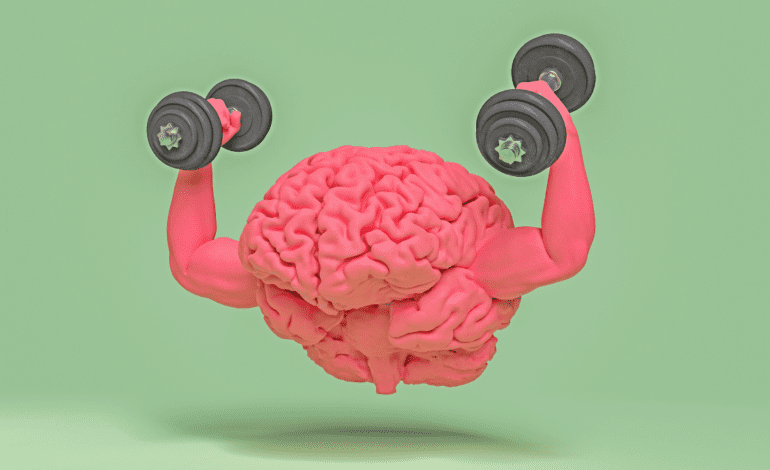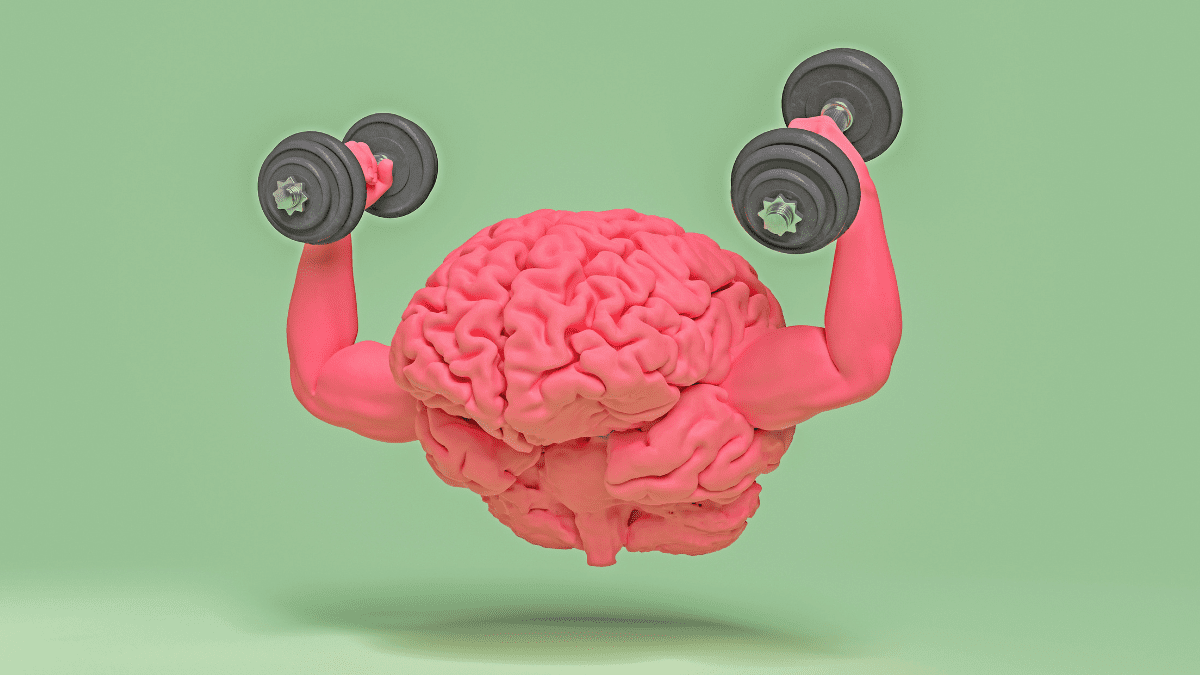Exercise and Brain Fog: End Mental Fatigue for Good
Exercise and brain fog are deeply connected—unlock laser focus, crush fatigue, and reclaim your mind with simple daily moves that trigger real, lasting brainpower breakthroughs.

In This Article
- What’s the Link Between Exercise and Brain Fog?
- How Are Exercise and Brain Fog Connected in the Brain?
- What Types of Exercise Help Clear Brain Fog Fast?
- How Often Should You Exercise to Fight Brain Fog?
- Why Isn’t Exercise Working for Your Brain Fog?
- How to Build a Sustainable Brain-Boosting Exercise Routine
- Conclusion: Can Exercise Really End Brain Fog for Good?
- Exercise and Brain Fog — FAQ
What’s the Link Between Exercise and Brain Fog?
If you’ve ever felt mentally foggy, distracted, or simply “off,” you’re not alone. Brain fog is more than a passing phase—it’s a real cognitive issue affecting focus, memory, and mental energy. While it can stem from many causes, one of the most overlooked solutions is also one of the most powerful: exercise. Recent studies show a strong connection between exercise and brain fog. In fact, movement doesn’t just energize the body—it rewires the brain. It boosts blood flow, reduces stress hormones, and supports chemical messengers tied to clarity and motivation. Even a brisk 20-minute walk can help you break free from mental fatigue.
In this article, you’ll discover how to use the right kinds of physical activity to clear your mind, why your current routine might not be working, and how to stay consistent without burning out. You’ll also find science-backed answers to questions you might be asking yourself every day.
Plus, if you’re curious about how nutrition and supplements can support your brain, don’t miss our detailed guide on brain fog supplements you need now to reclaim clarity.
Let’s dive in and explore how movement can finally give your mind the reset it’s been craving.
How Are Exercise and Brain Fog Connected in the Brain?
What Causes Brain Fog, and Why Is It So Common Now?
Brain fog isn’t just a lack of focus. It’s a disruption in your brain’s ability to process clearly. Many factors contribute—chronic stress, lack of sleep, poor nutrition, or inflammation. However, one of the most common triggers is a sedentary lifestyle. Without movement, the brain receives less oxygen, which slows down neural activity. Over time, this leads to slower thinking, low motivation, and persistent fatigue.
Today’s fast-paced yet physically inactive lifestyle is a major reason why brain fog is on the rise. Fortunately, movement is one of the simplest ways to fight back.
How Does Exercise Impact Neurotransmitters Like Dopamine and Serotonin?
Physical activity directly influences the chemical messengers in your brain. When you move, your body produces more dopamine, serotonin, and norepinephrine. These neurotransmitters are key for emotional balance, motivation, and alertness.
Low levels of these chemicals often show up as symptoms of brain fog—feeling disconnected, mentally slow, or emotionally flat. That’s why even moderate exercise like cycling, dancing, or resistance training can elevate your mood and mental clarity. According to Psychology Today, consistent movement helps regulate these brain chemicals, creating a stronger, sharper, and more resilient mind.
Can Exercise Reduce Inflammation Linked to Mental Fatigue?
Yes, and this is critical. Inflammation isn’t just a physical concern—it affects your brain too. Chronic inflammation has been closely linked to cognitive decline and mental exhaustion. But here’s the good news: exercise is one of the most effective anti-inflammatory tools.
As Healthline reports, aerobic activity reduces levels of C-reactive protein and other inflammatory markers. By reducing inflammation, exercise restores healthier brain function. The result? Clearer thoughts, quicker decision-making, and sharper memory.
Consistent physical activity doesn’t just treat the symptoms—it addresses one of brain fog’s root causes. That’s what makes it a long-term solution, not just a quick fix.

What Types of Exercise Help Clear Brain Fog Fast?
Is Cardio or Strength Training Better for Mental Clarity?
Both cardio and strength training can improve brain health, but in different ways. Cardio increases blood flow and oxygen to the brain. This helps clear mental fog and boost energy quickly. Strength training, on the other hand, enhances mood by stimulating endorphin production.
According to Verywell Mind, combining both types of exercise creates the most powerful brain-boosting effect. That means you don’t need to choose between them. A balanced mix of the two helps your body and brain perform better.
Short on time? Even 15 minutes of moderate cardio or bodyweight exercises can make a noticeable difference in your focus.
How Can Yoga and Breathwork Fight Brain Fog Naturally?
Yoga is more than stretching. It activates your parasympathetic nervous system, which helps calm the mind and body. This is key when you’re feeling mentally overwhelmed.
Specific poses like forward bends, child’s pose, and gentle twists support blood flow to the brain. According to Mindful.org, yoga also encourages mindfulness, which reduces stress and mental clutter.
Breathwork—when combined with movement—can deepen this effect. Slow, intentional breathing lowers cortisol and sharpens your focus. Together, yoga and breathwork create space in both body and mind, making them ideal for anyone struggling with brain fog.
Does Walking Count as Exercise to Clear Brain Fog?
Yes, and it’s one of the most underrated tools for mental clarity. Walking is accessible, low-impact, and doesn’t require equipment. It increases circulation and encourages creativity.
A recent article from PositivePsychology.com shows that walking outdoors can reduce anxiety and improve cognitive flexibility. Just 20 minutes a day can help your brain reset.
Even better, walking breaks throughout your workday can prevent brain fog from building in the first place. So yes—walking absolutely counts.
How Often Should You Exercise to Fight Brain Fog?
Is Daily Movement Better Than Intense Weekly Workouts?
When it comes to reducing brain fog, consistency beats intensity. Moving your body daily—even for just 15 to 30 minutes—can do more for your mental clarity than long, sporadic workouts. Frequent movement keeps blood and oxygen flowing to your brain, helping you think faster and feel more alert.
As reported by Healthline, daily moderate exercise has been shown to improve memory, focus, and energy levels. Unlike intense sessions that may exhaust you, lighter, consistent activity helps stabilize your nervous system. It supports a clearer mind throughout the day.
How Long Does It Take for Exercise to Impact Brain Fog?
The benefits can begin immediately. Just one workout can improve your mood and focus. However, the long-term impact builds with regular practice. According to Mayo Clinic, people often notice enhanced mental clarity after just a week of consistent exercise.
That’s because physical activity helps regulate hormones and neurotransmitters involved in cognitive function. Over time, your brain becomes more resilient, responsive, and balanced. But the key is to keep showing up, even on low-energy days.
What’s the Best Time of Day to Exercise for Mental Energy?
There’s no one-size-fits-all answer—but morning exercise has strong advantages. Starting your day with movement can enhance mental clarity, reduce stress, and set a productive tone. Morning workouts also help balance cortisol, which supports sharper thinking and stable moods.
However, some people find that midday or evening sessions work better with their body’s natural rhythm. According to Headspace, the best time to exercise is the time you can stick with. The most important thing is to make it part of your daily life.
Listen to your body. If brain fog hits hard in the afternoon, a brisk lunchtime walk might be your reset button. Try different times and notice what gives you the biggest mental lift.
Why Isn’t Exercise Working for Your Brain Fog?
Are You Overtraining and Making Brain Fog Worse?
Exercise is powerful—but too much of it can backfire. If you’re pushing your body past its limits, your brain may suffer instead of improve. Overtraining raises cortisol levels and taxes the nervous system. As a result, brain fog may linger or even worsen.
According to Verywell Mind, signs of overtraining include poor sleep, irritability, and persistent fatigue. These are also classic symptoms of brain fog. So, if your mental clarity is getting worse, scale back. Focus on gentle, restorative movement until balance is restored.
Moderation is key. More isn’t always better—smarter is.
Is Poor Nutrition Cancelling Out the Brain Benefits of Exercise?
Even the best workout plan won’t help if your brain isn’t nourished. Exercise boosts circulation and neurotransmitters, but your body still needs fuel to perform. If you’re skipping meals, eating ultra-processed foods, or not drinking enough water, brain fog may persist.
As Mindvalley explains, nutrients like omega-3s, magnesium, and B vitamins are crucial for brain health. Without them, the mental benefits of exercise can plateau. Pair movement with clean, consistent nutrition to feel the full cognitive boost.
Also, don’t underestimate hydration. Dehydration can impair memory and attention, even in mild cases.
Could Sleep or Stress Be Undermining Your Progress?
Yes—both can block your brain from reaping exercise’s full benefits. Chronic stress keeps your mind in survival mode. It floods your system with cortisol, which disrupts focus, memory, and emotional regulation. Poor sleep has a similar effect, draining mental energy and slowing down recovery.
According to Harvard Health Publishing, sleep and exercise work in tandem. When you sleep well, your brain processes and stores information more efficiently. But if you’re not resting enough, the mental gains from your workouts may vanish.
Make stress reduction and sleep quality part of your brain-fog recovery plan. Only then will exercise truly work its magic.

How to Build a Sustainable Brain-Boosting Exercise Routine
What Are Simple Ways to Stay Consistent Without Burning Out?
Sustainability matters more than intensity. When you’re trying to clear brain fog, consistency fuels long-term results. But overcommitting often leads to burnout. That’s why it’s better to start small and grow gradually.
Begin with short, manageable workouts—just 10 to 20 minutes a day. Mix it up with walking, light strength training, or yoga. According to PositivePsychology.com, this variety keeps you engaged and improves both mental and emotional health.
Schedule movement like any other important task. Set reminders. Keep your gear visible. These small habits make it easier to stay on track even when your motivation dips.
How Can You Use Mindfulness to Amplify the Mental Benefits of Exercise?
Mindfulness strengthens the brain-body connection. It brings intention into every movement. When paired with exercise, it helps anchor your awareness in the present moment.
Rather than zoning out during a workout, focus on your breath, posture, and physical sensations. As noted by Mindful.org, mindful movement improves mood, concentration, and emotional regulation.
Try adding five minutes of deep breathing before or after your session. Or end with a body scan. These simple shifts can elevate exercise from a physical task to a full-brain reset.
What Supplements or Recovery Tools Support Mental Clarity?
Even with regular exercise, your brain needs recovery to stay sharp. Nutritional gaps, chronic tension, or lack of sleep can all stall your progress. That’s where supportive tools come in.
Magnesium, adaptogens like ashwagandha, and omega-3 fatty acids can enhance cognitive recovery. As Healthline shares, these supplements reduce inflammation and support neurotransmitter balance—key for mental clarity.
Foam rolling, stretching, and sleep-enhancing rituals also aid recovery. The goal isn’t perfection. It’s giving your body and brain the resources they need to bounce back stronger.
A well-rounded recovery routine is what transforms daily workouts into a lifestyle that fuels lasting clarity.
Conclusion: Can Exercise Really End Brain Fog for Good?
Yes—when done right, exercise can be a powerful weapon against brain fog. It increases blood flow, boosts neurotransmitters, and reduces inflammation. More importantly, it reconnects your mind with your body.
Still, it’s not about working harder. It’s about moving smarter. Daily, moderate movement helps more than sporadic high-intensity workouts. Even a walk can sharpen focus and lift energy levels.
However, exercise alone isn’t always enough. To truly reclaim clarity, you need to look at the full picture. Sleep, nutrition, and stress all play critical roles. If any of these are out of balance, brain fog can creep back in.
That’s why building a sustainable routine matters. It’s not a short-term fix—it’s a lifestyle shift. One that supports your mind, not just your muscles.
Don’t forget the power of mindfulness. When you move with intention, you train your brain as much as your body. Over time, this awareness deepens your mental clarity and emotional stability.
So, start small. Stay consistent. Listen to your body. Celebrate the subtle changes. The path to mental clarity isn’t instant, but it is within reach.
With each step, rep, or breath, you’re not just exercising—you’re clearing space in your mind. You’re choosing focus over fog, energy over exhaustion.
And that choice, made daily, can transform everything.
Exercise and Brain Fog — FAQ
Can exercise really help with brain fog?
Yes. Exercise increases blood flow, reduces stress, and boosts brain chemicals that improve focus and clarity.
How often should I exercise to reduce brain fog?
Daily light to moderate movement works best. Even 15–20 minutes a day can make a big difference over time.
What type of exercise is best for brain fog?
A mix of cardio, strength training, and yoga works well. Walking and mindful movement are also very effective.
Why does brain fog sometimes get worse after working out?
You might be overtraining or under-recovering. Poor sleep, stress, or bad nutrition can cancel out exercise benefits.
How long does it take for exercise to improve brain fog?
Some benefits are immediate. But noticeable long-term improvements usually show after one to two weeks of consistent effort.







